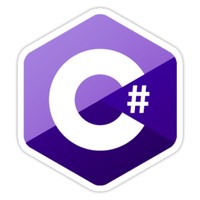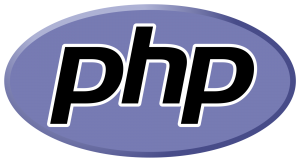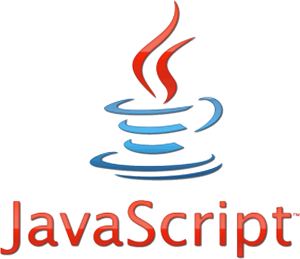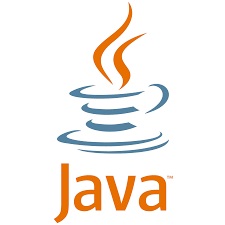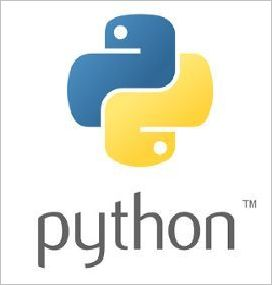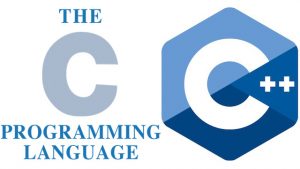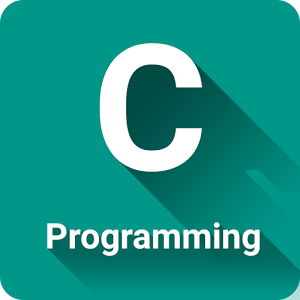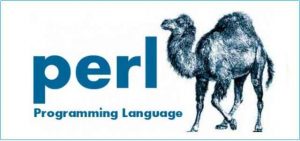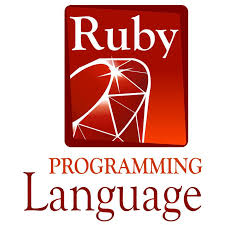- January 5, 2019
- Posted by: fyber
- Category: programming language
Top 10 programming language contains popular programming language like C#, PHP, JavaScript, Java etc. A programming language is a vocabulary and set of grammatical rules for instructing a computer or computing device to perform a specific task that the programmer wants. In simple language, programming languages is a coded language used by programmers to write instructions that a computer can understand to do what the programmer or the computer user wants.
However, the most basic or low-level computer language is the machine language that uses binary code (‘1’ and ‘0’) through which a computer can run very fast without using any translator or interpreter program, but it is tedious and complex.
The high-level languages like C language and Java language are much simpler to use but need to use another program (a compiler or an interpreter) to convert the high-level code into the machine code.
High-level languages are nearly like human languages which are more complex than the computer understandable language. These languages are called machine language or low-level language.
In this article, I am going to tell about the top 10 programming languages.
Top 10 Programming language
Table of Contents
C#
C# is pronounced as C sharp. It is a general-purpose, multi-paradigm programming language including strong typing, important, declarative, functional, generic, object-oriented and component-oriented programming disciplines.
In simple term, C# is a simple, modern, general-purpose, object-oriented programming language which is developed by Microsoft around 2000 within its .NET initiative.
However, C# syntax is highly expressive, but yet it is simple and easy to learn. The curly-brace syntax of C# will be instantly recognizable to anyone familiar with Java C, or C++. This reason places C# on top in the top 10 programming language. Those developers who know any of these languages are typically able to begin to work productively in C# within a very short time.
C# syntax simplifies many of the complexities that arise in C++ and provides powerful features such as enumerations, nullable value types, lambda expressions, delegates and direct memory access, which are not found in Java.
We already discussed that C# supports generic methods and types that provide increased type safety and performance and iterators and enable implementers of collection classes to define custom emphasis behaviors that are simple to use by client code.
Some great feature C# programming
- It is a modern, simple, object-oriented language derived from C++ and Java.
- Fast speed.
- Scalable and Updateable.
- C# programming supports garbage collection, automatic memory management, and a lot.
- C# language aims to combine the high productivity of Visual Basic and the raw power of C++.
Advantages of C# language:
Object-oriented
C# language is object-oriented that’s why it allows you to create modular maintainable applications and reusable codes.
Automatic Garbage Collection
In C# language, a unique system installed that collect and erase garbage automatically present on the system.
Avoid the problem of memory leak
It contains strong memory backup that’s why memory leakage problem is not occurring.
Easy-to-Development
It contains a rich class of libraries that make many functions easy to be implemented.
Familiar syntax
The core syntax of C# language is very similar to C-style language that’s why it is so easy to pick up and work in productively with a working knowledge of languages like C, C++.
PHP
The full form of PHP is “PHP Hypertext Preprocessor”. It is a programming language that allows web developers to create interacts with databases. However, PHP is basically used for developing web-based software applications.
It offers a large section of instruments which has become the basis for many web applications that allow easy insertion in HTML code and connection to MySQL and PgSQL Databases.
In starting, PHP started out as a small open source project, but it evolved as more and more people found out how useful it was.
Some common use of PHP:
- PHP performs system functions: which means from files on a system it can create, open, read, write and close them.
- PHP can handles forum: it can gather data from files, save data to a file, through email you can send data, return data to the user.
- Through PHP, you can add, delete, modify elements within your database.
- You can access cookies variables and set cookies through PHP.
- PHP can encrypt data.
Characteristics of PHP
Five important characteristics of PHP that make PHP’s practical nature possible:
- Simplicity
- Efficiency
- Security
- Flexibility
- Familiarity
Advantages of PHP:
Cross Platform
PHP programming can be run on various platforms. This is the most important advantage of PHP because the developer need not have to worry about the system the user is working on. Its code can runs properly and smoothly on all operating systems.
Ease to use
PHP language is very easy to use. Anyone who is new to programming can easily learn to use them within a short duration of time.
Speed
Speed is the basic need for web development. There are many people who face the challenge of slow internet connection and slow data speed. When we compared PHP to other programming languages on the basis of speed, PHP is found to be the fastest programming language.
Open Source
PHP is Open Source that’s why it is readily available and is entirely free. PHP language is open for everyone, anytime and anywhere.
JavaScript
JavaScript is also called “JS” in short. JS is a dynamic computer programming language which is lightweight and most commonly used as a part of web pages, whose implementations allow a client-side script to communicate with the user and make dynamic pages.
Java is an interpreted programming language with object-oriented capabilities.
JavaScript was invented by Brendan Eich (co-founder of the Mozilla project, the Mozilla Foundation, and the Mozilla Corporation). However, JavaScript was initially created to make web pages alive and was first known as LiveScript. But after some time, Netscape changed its name to JavaScript because of the excitement being generated by Java. JavaScript made its first appearance in Netscape 2.0 in 1995 as LiveScript.
Advantages of JavaScript:
Less server interaction
You can confirm user input before sending the page off to the server. This saves server traffic, i.e; less load on your server.
Instant feedback to the visitors
They don’t have to wait for a page reload to see if they have forgotten to enter something.
Increased interactivity
You can create interfaces that react when the user hovers over them with a mouse or activates them with the keyboard.
Richer interfaces
You can also use JavaScript to include such items as drag-and-drop components and sliders to give a Rich Interface to your site visitors.
Some limitation of JavaScript
We can’t call JavaScript as a full-fledged programming language. It lacks some important features:
- Client-side JavaScript does not allow the writing or reading of files. This has been kept for security reason.
- JavaScript can’t be used for networking applications because there is no such support available.
- JavaScript doesn’t have any multi-threading or multiprocessor capabilities.
Java
Java is a famous general-purpose programming language and computing platform. Like any programming language, it has its own structure, syntax rules, and programming paradigm. Its programming paradigm is based on the concept of OOP, which the language’s feature support.
Java was developed by James Gosling at Sun Microsystems (which has since been acquired by Oracle Corporation) and released in 1995 as a core component of Sun Microsystems’ Java platform.
Since the Java language is a C-language derivative, therefore its syntax rules look much like C’s. For instance, in Java, code blocks are modularized into methods and delimited by braces ({ and }), and variables are declared before they are used.
Hire a Java developer click here
Advantages of Java:
Java is platform independent
It is the most significant advantages of Java. Java programming has the ability to move easily from one computer system to another.
An object-oriented Language
Since Java is an object-oriented language that’s why it allows you to create modular programs and reusable code.
Java is easy to learn
Since Java programming was designed to be easy to use that’s why it is easy to write, compile, debug and learn than other programming languages.
Java is Robust
Here, robust means reliable. Java language is very reliable and this reliability stems from Java’s ability to perform early and thorough checks for all possible errors.
Java is secure
Java programming is considered secure because of its secure design. Its compiler, interpreter, and runtime environment were each developed with security in mind.
Python
Python is an interpreted, powerful high-level, object-oriented, general-purpose programming language. Python programming language was created by Guido van Rossum and first released in 1991. It has a design philosophy that emphasizes code readability, notable using significant whitespace. Python has simple and easy-to-use syntax, which makes it the perfect language for someone trying to learn computer programming for the first time.
Python language is much easier than other languages to read and translate by developers.
Advantages of Python:
- Python language is too easy to learn for even a novice developer.
- Python programming code is easy to read and you can do a lot of complex functionalities with ease with the help of the standard library.
- Python programming has a plethora of frameworks that make web programming very flexible.
- Python language provides quick development by using less code.
- Even a small team can handly Python programming effectively.
For further information about the Python language click here
C++
C++ is a statically-typed, compiled, free-form, multi-paradigm, intermediate-level, general purpose, middle-level programming language. It is based on C programming and was developed by Bjarne Stroustrup in 1979 at Bell Labs. C++ runs on a variety of platforms like Windows, MacOS, and the various version of UNIX.
Advantages of C++ language:
- C++ is an extended version of C. However, the C part of it is very low level but this version offers a huge boost in speed that high-level languages like Python, Java don’t give you.
- It is a statically typed programming language. Which means that C++ doesn’t allow the compiler to make an assumption about the type of data. For example, 10 is different from “10” and you have to let C++ know which one you are talking about which helps the compiler to catch errors and bugs before the execution of the program.
- C++ language support at least 7 different styles of programming and gives developers the freedom to choose one at their will.
- Since C++ is object-oriented programming, it helps you to solve a complex problem intuitively.
- C++ power extends with the use of standard libraries contained in it. These C++ libraries contain efficient algorithms that you use extensively while coding.
You can choose perfect programming language for programming between top 10 programming language which poperty is perfect for you.
C
C is a general-purpose programming language that is used for a wide range of applications from operating systems like window and iOS to software that is used for creating 3D movies. The C programming language is highly efficient and that’s the main reason why it’s very popular despite being more than 40 years old. It is portable, fast and available on all platforms.
C language was developed by Dennis Ritchie between 1969 and 1973 at Bell Labs.
Many later programming languages have borrowed syntax / featured directly or indirectly from C language. Like PHP, JavaScript, the syntax of Java and many other languages is based on C programming. However, C++ is nearly a superset of the C language.
Advantages of C programming:
- C programming includes low-level access to memory, a simple set of keywords, and clean style, which make C language suitable for system programmings like an operating system or compiler development.
- C language is a procedural language. In a procedural language, a list of predefined instructions is carried out step by step. C program may contain one or more procedures to perform a task.
- It is fast. Newer languages like Java, Python offer more features than C programming but their performance lowers due to additional processing.
- C program trusts programmers and allows direct manipulation of the computer hardware.
- C programs are portable. It means programs written in one system can be compiled in another system without any change.
Perl
The word Perl stands from “Practical Extraction and Reporting Language”. It is a general-purpose programming language originally developed for text manipulation and now used for a wide range of tasks including system administration, web development, network programming, GUI development, and more. It is an Open Source software, licensed under its Artistic License, or the GNU General Public License (GPL). Perl language is used for mission critical projects in the public and private sectors.
Perl language was originally developed by Larry Wall in 1987 as a general-purpose Unix scripting language to make report processing easier.
Advantages of Perl language:
- Perl language supports Unicode.
- It supports both procedural and object-oriented programming.
- Perl programming works with HTML, XML, and other markup languages.
- Perls database integration interface DBI supports third-party databases including Oracle, Sybase, MySQL, Postgres, and others.
- Perl takes the best features from other languages, such as C, awk, sh, sed, and BASIC, among others.
Ruby
Ruby is an interpreted, dynamic, reflective, object-oriented, general-purpose programming language. It is an open source programming language with a focus on simplicity and productivity. Ruby has elegant syntax that is natural to read and easy to write. This is the reason that it comes in top 10 programming language.
“It was designed and developed by Yukihiro “Matz” Matsumoto in Japan in the mid-1990s”.
Advantages of Ruby programming:
- Ruby programming allows simple and fast creation of web application which results in less hard work.
- This language is free of charge. Which means is Ruby is free to copy, use, modify, it allows programmers to make necessary changes as and when required.
- The code written in Ruby language is small, elegant and powerful as it has a fewer number of lines of code.
- Since Ruby is a dynamic programming language, therefore, there are no tough rules on how to built-in features and it is very close to spoken languages.
Shell
Shell program is a special user program that provides an interface to the user to use operating system services. It accepts human readable commands from a user and converts them into something which kernel can understand. Shell language is a command language interpreter that execute commands read from input devices such as keyboards or from files.
Shell program in a Linux operating system takes input from you in the form of commands, processes it, and then gives an output. It is the interface through which a user works on the commands, programs, and scripts.
Advantages of Shell programming:
- Easy to use.
- Quick start and interactive debugging.
- Time-saving.
- System admin task automation.
- Shell scripts can execute without any additional effort on nearly any modern Linux / UNIX / BSD / Mac OSX operating system.
Conclusion:
If you are a programmer then you should be knowledgeable about the top 10 programming language. All programming language has a different-different feature that makes it more beneficial and attractive. In this article, I explained about the top 10 programming language and its benefits. However, only the theoretical part is described in this article. If the coding part is added in this article then the article becomes too long. Therefore I described coding part in the next article. Stay tuned with CODE XOXO.

